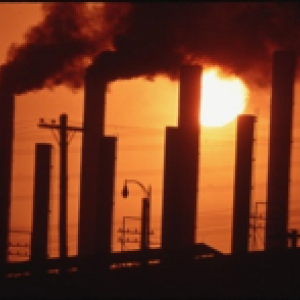
Greenhouse gases fell by 3.3 % in the EU in 2011, leading to the lowest level of emissions in reports going back to 1990. At the same time the EU experienced a 1.6 % growth in GDP. The decrease in 2011 was also the third largest over this period, according to official data compiled by the European Environment Agency (EEA) and reported by the EU to the United Nations Framework Convention on Climate Change (UNFCCC).
The European Union’s total greenhouse gas emissions are now about 18.4 % below 1990 levels, according to the EU greenhouse gas inventory. However, when international aviation is included, in line with the climate and energy package, greenhouse gas emissions fell 17 % in the EU since 1990.
The fall in GHG emissions is largely attributable to a milder winter, meaning there was less demand for heating energy. At the same time there was an increase in use of more carbon-intensive fuels such as coal, while hydroelectricity production and gas consumption decreased.
More detailed findings as follows:
- Almost two thirds of the emissions reduction in 2011 came from the United Kingdom, France and Germany. The largest increases in the absolute volume of emissions were in Romania, Bulgaria and Spain.
- Fossil fuel consumption decreased by 5 % in the EU. However, the average carbon intensity of the fossil fuels used increased, with solid fuel consumption, such as hard coal and lignite, rising by almost 2 % between 2010 and 2011. Liquid fuel consumption decreased by 4 % and natural gas consumption fell by almost 11 %. Biomass combustion increased by less than 1% in EU-27 in 2011.
- Consumption of energy from renewable sources had the second largest decline of the last 21 years in percentage terms, mainly due to significantly lower hydroelectricity production. Wind and solar, however, continued increasing strongly in 2011.
- Nuclear power’s contribution to electricity also declined in the EU in 2011 compared to 2010, mainly due to closure of power plants in Germany, according to Eurostat energy data.
- Road transport emissions continued to decline in 2011 for the fourth consecutive year. In contrast, emissions from international aviation and shipping increased in 2011.
For more information see here.
However it is important to remember that while EU production related emissions have fallen, when considers from a consumption perspective (ie. the embedded emissions in the goods and services that are imported) they are rising – at least for the UK. Moreover the increase in the UK’s consumption based emissions substantially outweighs the reductions achieved in production based emissions within the UK borders. In other words, the UK is offshoring its climate impacts.
The UK government’s House of Commons Energy and Climate Select Committee summarises these points as follows;
“The UK’s consumption-based emissions take into account the emissions generated in another country during the manufacture of goods (or services) that are then exported and ‘consumed’ in the UK ... There is a clear divergence between the UK’s territorial emissions and its consumption based emissions. The UK’s territorial emissions have been going down, while the UK’s consumption-based emissions, overall, have been going up. The rate at which the UK’s consumption-based emissions have increased have far offset any emissions savings from the decrease in territorial emissions. This means that the UK is contributing to a net increase in global emissions”.
The report is called: HoC (2012). House of Commons Energy and Climate Change Committee Consumption-Based Emissions Reporting, Twelfth Report of Session 2010–12. HC1646.
You can download it here.
For more studies on the FCRN website on consumption based reporting, see here.







Post a new comment »